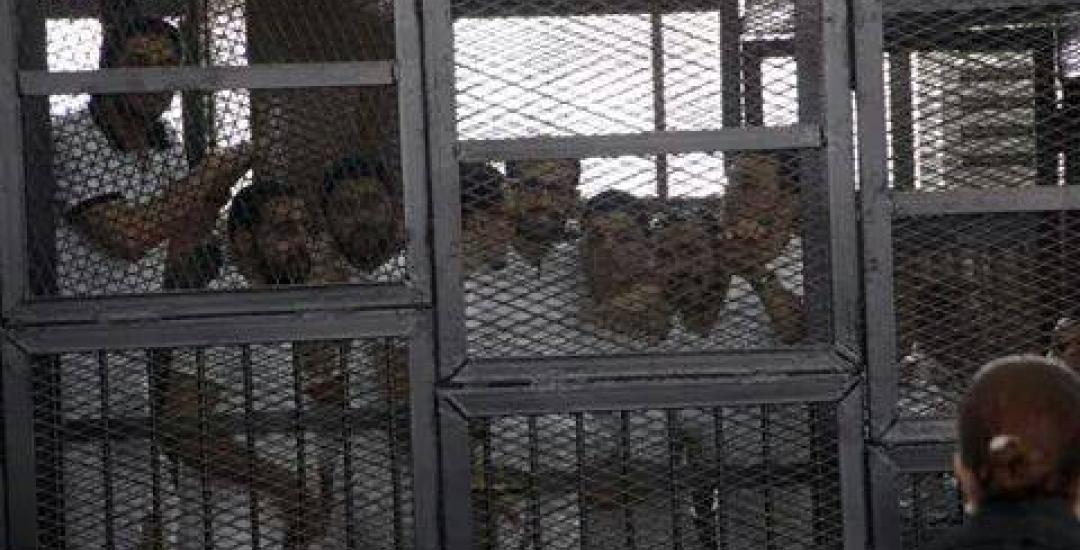
On 28 May 2017, nine journalists prosecuted in the “Raba’a Operations Room” mass trial were included in a new “terrorist list” issued by the Egyptian authorities. The document was published 20 days after the issuance of their final judgment: while five of them were released, four – Abdullah Alfakharany, Samhy Abdulalim, Mohamed Aladili and Youssouf Talat Abdulkarim – remain in detention at Al Aqrab prison.
The “terrorist list” was published in the Egyptian Official Gazette by decisions of the 16th Circuit Court of Cairo and the Court of Appeals of Cairo on 28 May 2017, and included names of journalists, activists as well as several individuals accused of “belonging to the Muslim Brotherhood”. These individuals will remain on the list for a period of three years and will be subjected to the following measures: travel bans, withdrawal of passports, freezing of funds, prohibition to hold public or parliamentary position, to carry journalism related activities, to organise meetings or raise slogans.
The decisions were enacted on the basis of the controversial Anti-Terrorism Law No. 94 of 15 August 2015, which the Egyptian authorities continue to use to justify the violent crackdown on all dissenting voices, journalists, human rights defenders and political opponents. It appears clear that the nine men were listed due to their work as journalists. The journalists’ listing was brought to the attention of the UN Special Rapporteur on the promotion and protection of the right to freedom of opinion and expression (SRFRDX). Alkarama requested his prompt intervention with the Egyptian authorities to urge them to remove the nine journalists from the terrorist list and refrain from listing such individuals who have only peacefully exercised their right to freedom of expression.
The cases of Mohamed Salah Soltan, a 29-year-old Egyptian American activist and human rights defender, and his father Salah Eldeen Soltan, a 58-year-old political opponent and activist, former Deputy Minister of Islamic Endowment under the Morsi government and member of the Muslim Brotherhood, were also included in the list. Mohamed and his father were prosecuted in the Raba’a Operation Room trial, sentenced to death and life imprisonment respectively, before seeing their sentences reduced to five years imprisonment on 8 May 2017.
Mohamed and his father were arrested because of their peaceful activism and opposition to the military takeover of July 2013. Mohamed reported that he was live-tweeting the violent dispersal of peaceful protests following the coup, while his father, as a political figure, was a victim of the crackdown on dissidents. While Mohamed was released on 30 May 2015 following a diplomatic intervention of the American authorities, which required him to give up his Egyptian citizenship, his father is however still detained at the Wadi El Natroun 440 Maximum Security Prison awaiting his judgment, which continues to be postponed since 2014.
For more information or an interview, please contact media@alkarama.org (Dir: +41 22 734 1008).
